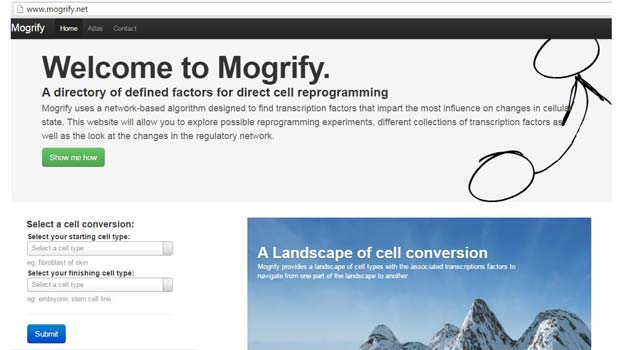HealthXchange will NEVER ask you to transfer money over a call. If in doubt, call the 24/7 ScamShield helpline at 1799, or visit the ScamShield website at www.scamshield.gov.sg.

- The algorithm, called Mogrify, is available online for researchers to use
- Mogrify helps overcome the long and costly process of trial and error in determining factors for a particular cell conversion
- One potential application is in reprogramming ‘defective’ cells from patients into ‘functioning’ healthy cells
An international team of researchers from the Duke-NUS Medical School (Duke-NUS), the University of Bristol, Monash University and RIKEN have developed an algorithm that can predict the factors required to convert one human cell type to another.
These findings have significant implications for regenerative medicine and lay the groundwork for further research into cell reprogramming.
The algorithm, called Mogrify, was developed by Duke-NUS Senior Research Fellow Dr Owen Rackham over a span of five years, and is now available online.
Mogrify predicts the optimal set of cellular factors required for any given cell conversion, based on previously published works. This helps scientists overcome the long and costly process of trial and error when determining the unique set of cellular factors needed for each cell conversion.
“Mogrify acts like a ‘world atlas’ for the cell and allows us to map out new territories in cell conversions in humans,” explained Dr Rackham.
“One of the first clinical applications that we hope to achieve with this innovative approach would be to reprogramme ‘defective’ cells from patients into ‘functioning’ healthy cells. These then can be re-implanted into patients, and should, in practice, effectively enable new regenerative medicine techniques.”
The team at Duke-NUS now plans to focus on Mogrify’s application in translational medicine. Research groups in the medical school are collaborating to apply the algorithm to the development of treatments for specific diseases, such as cancer.
“Mogrify is a game-changing method that leverages big-data and systems-biology; this will inspire new translational applications as the result of the work and expertise here at Duke-NUS,” said Associate Professor Enrico Petretto, co-author of the study and head of the Systems Genetics of Complex Disease Laboratory in the Centre for Computational Biology at Duke-NUS.
The study is supported by the Biotechnology and Biological Sciences Research Council, the Japan Society for the Promotion of Science and the Duke-NUS Signature Research Programme, with funding from the Singapore Ministry of Health.
The team’s findings were published online on 18 January 2016 in Nature Genetics.
Mogrify is available online at www.mogrify.net
Get the Health Buddy App
© 2025 SingHealth Group. All Rights Reserved.













 Get it on Google Play
Get it on Google Play